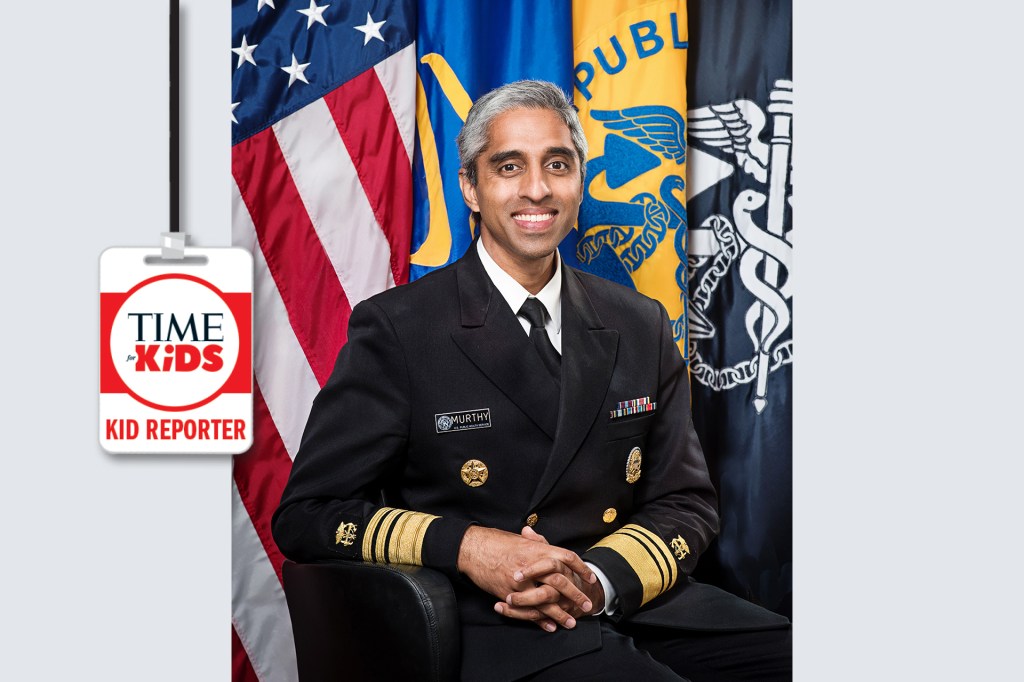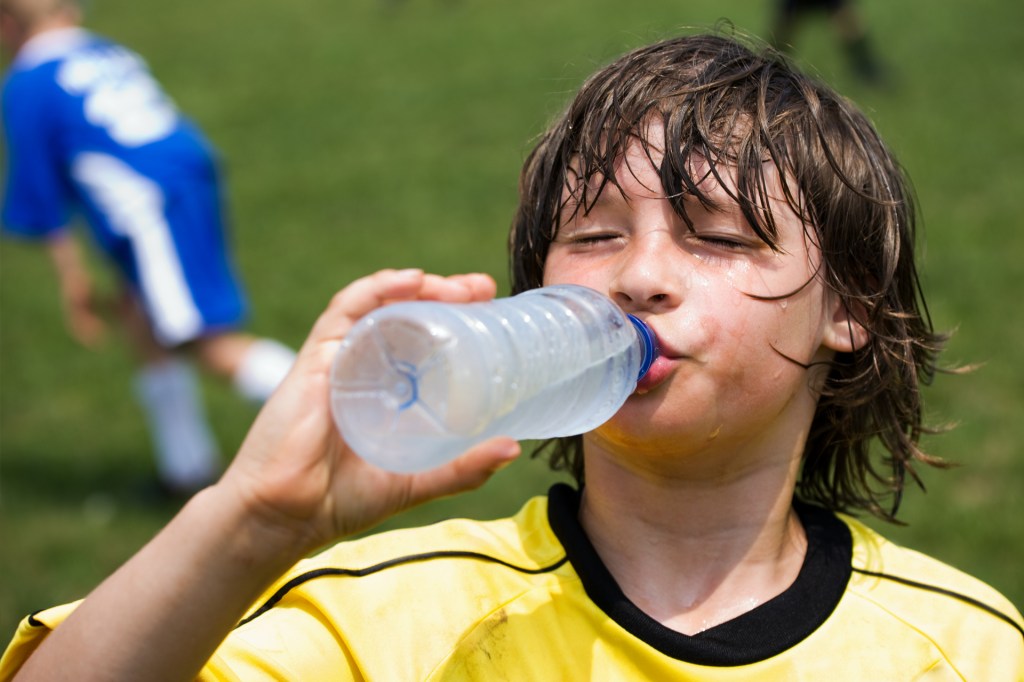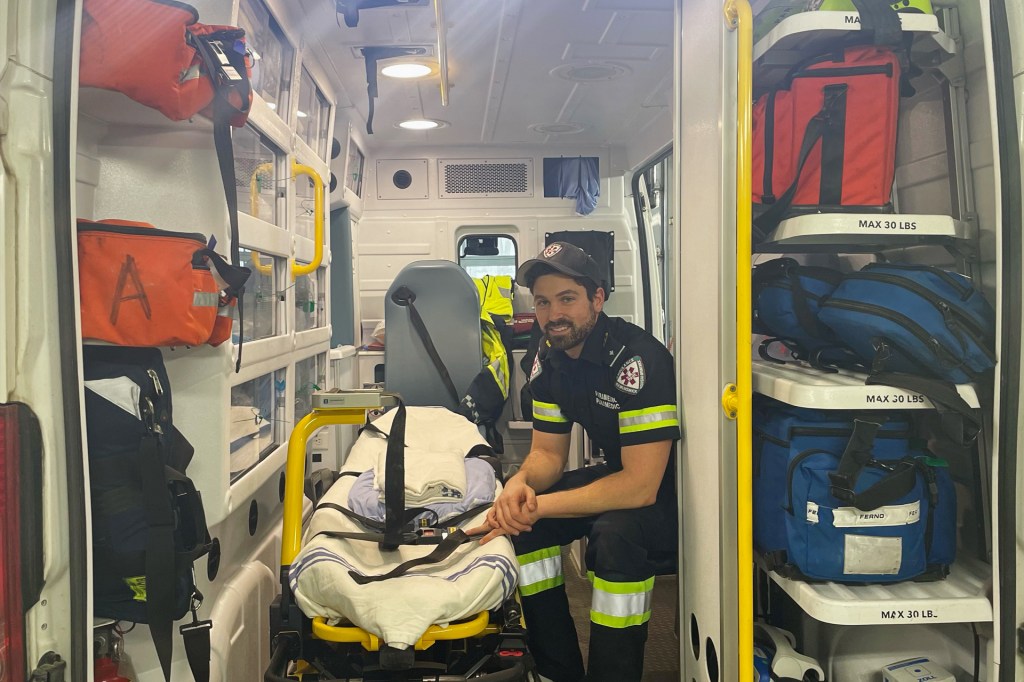
On November 3, the day after Pfizer’s COVID-19 vaccine was approved for kids ages 5 to 11, I had a chance to speak with the United States surgeon general, Dr. Vivek Murthy.
The surgeon general oversees the U.S. Public Health Service, and is the country’s top doctor. I asked him questions about his job, the vaccine, and what kids need to know about staying healthy. I learned that reaching out to friends who might be feeling lonely and anxious about getting back to school this year can be good for all of us.
TFK Kid Reporter Lucy Sandor:
My first question is pretty simple. What is a surgeon general?
Dr. Vivek Murthy:
The surgeon general has two jobs. And it’s important to note that surgeon general is a position that’s been around for more than 100 years in the government. This is an individual who is charged with, number one, making sure that people all over the country have access to good, accurate information based on science, so they can make good decisions for themselves and their families about their health. And the second role of the surgeon general is to oversee one of the eight uniformed services in the U.S. government. So, you’re probably familiar with the Army, the Navy, the Air Force . . . . Well, one of the other uniformed services we have is the Public Health Service Commissioned Corps. These officers—there are about 6,000 of them; they include doctors and nurses and pharmacists—they go all over the country, and sometimes around the world, helping people when there’s a health crisis.
So that’s what the surgeon general does. And the most important job the surgeon general has is to make sure that he or she is doing everything possible to help people around our country stay healthy and safe.
Lucy:
Thanks for explaining. We have been hearing Dr. [Anthony] Fauci’s name a lot in the past year. And we hear your name sometimes in the news, too. What’s the difference?
Dr. Murthy:
Well, that’s a good question. There are thankfully a number of us in government who are scientists and doctors and public-health experts who are trying to work on the pandemic and communicate with the public so people know how to keep themselves safe. Dr. Fauci has been doing this for many, many years. The surgeon general also does this. The CDC [U.S. Centers for Disease Control and Prevention] director is an important voice here, too.
So there are a lot of us working closely together. We talk often. We all speak in as many channels as we can to people, because in this moment when you’ve got to reach millions and millions of people across the country, having more than one voice is really helpful.
Lucy:
That makes sense. Now, what’s your favorite part of your job?
Dr. Murthy:
I’m actually doing it right now. It’s having a chance to talk to young people across the country, to hear about what’s on their mind and to understand what kinds of questions they have. That’s really my favorite part of my job. I have two kids myself. They’re 5 and 3. They ask me plenty of questions about COVID-19.
Lucy:
Next, I'm going to ask some questions about health and for your advice. I’m 11, and I’m really looking forward to getting my COVID vaccine. Some of my friends are worried and a little afraid, though. Is there any advice you have for them?
Dr. Murthy:
This is what I would say to your friends, Lucy, and what I hope that all young people and parents understand about the vaccine for kids. Number one, these vaccines were approached really, really carefully. They were studied in clinical trials, which are scientific studies that involved thousands of young people in the 5-to-11 age range. And [the studies] found two important things. One was that the vaccines were really effective at preventing young people from getting COVID. In fact, they were more than 90% effective—which, as far as vaccines go, is really, really high. The second thing they found is that the safety profile of these vaccines was really, really good. When people did experience a side effect, it tended to be something like soreness in the arm where they got their shot, or some redness or swelling in the arm, or some fatigue. But all those symptoms went away pretty quickly. And what [people] were left with was protection against the virus.
Here’s a thing I should tell you, Lucy, which is important for everyone to know. There’s also a risk of not getting vaccinated and getting COVID, right? Because what we’ve seen over the past year and a half is that the virus does have serious consequences in some young people. There have been, unfortunately, thousands of kids who have had to be hospitalized because of COVID. And there are also some symptoms—like shortness of breath, fatigue, tiredness—that can last for weeks or months after you get COVID.
So what I really want people to know is that [the vaccine] went through a careful process of study. The Food and Drug Administration, which looks carefully at any new medicine or vaccine, as well as the CDC, which has an important role in that too, have held this vaccine to the same high standards [to which] they would hold any other vaccine to make sure that it is both effective and safe for our kids.
Lucy:
That’s great advice. Thank you.
I know that you’ve done a lot of research on loneliness and how it negatively impacts adults’ health. Do you think it affects kids the same way?
Dr. Murthy:
I do worry a lot about loneliness, because a lot of people experience it, including young people. And I do think it has a negative effect on our health—not just our physical health, but also our mental health. And we’ve seen in many people, over the years, that anxiety and depression and other health challenges can increase in likelihood when you’re struggling with loneliness for a long period of time.
So I think it’s really important that we talk about loneliness. Because if you are feeling lonely, if you’re feeling isolated, it doesn’t mean that something’s wrong with you. It doesn’t mean that you’re a loser, or that you’re flawed in some way. It’s a very normal part of the human experience, and a lot of people feel lonely. Now, it doesn’t always look like that from the outside. So you can’t always judge, based on how many parties somebody is going to or how many friends they seem to have, whether they’re lonely or not. A lot of people are going to parties, or surrounded by a lot of friends, or have a lot of followers on social media, but are really alone.
So what’s important is that we recognize that each of us has a really powerful role that we can play in one another’s life simply by being a friend, by showing up and being present, by caring about somebody else, by listening to them when they’re having a hard time. That’s how we can help each other. And that’s why I always want people to remember that you don’t have to be a doctor or a nurse in order to be a healer, right? A healer is somebody who helps make other people’s health and well-being better. You can do that by being a good friend, by being a good family member, and by simply showing up for people in your life.
Lucy:
Thank you. That was very helpful.
Is there anything else that you think we should know that I didn’t ask you today?
Dr. Murthy:
Lucy, I’m so glad that you’re doing this, first of all, because it’s so important for young people to hear from other young people, and for young people to have a voice when it comes to how we deal with this pandemic. And it’s been a really tough pandemic.
There are a couple of things I just want to make sure that we convey to young people, as I know that this pandemic has been tough on everyone, and going through school has been hard during the pandemic for so many kids. You know, figuring out when this is going to end has been the big question everyone’s been worrying about and wondering about.
But I do want people to know that we’re making a lot of progress. We have 190 million people in our country who are now protected against COVID because they’ve been fully vaccinated. That’s a big deal. And now that we have a vaccine for kids under 12 years old, 28 million more people in our country will have a chance to get vaccinated and protected. But during this time, when we’re getting through the pandemic, there will be better days ahead. I want people to know that.
We will get back to a sense of normal. The way that we’re going to get there best is not only if we make sure folks get protected and vaccinated, but if we make sure that we support people in our lives during these hard times. You know, none of us can get through this alone. And if COVID has taught us anything, it’s that we really do need each other, and we do better when we take care of one another. So let’s just remember that this is a time when being kind and being compassionate to one another are more important than ever before. They’re what’s going to make this pandemic much easier for us all to get through.
Lucy:
Thanks so much for talking to TIME for Kids today, Dr. Murthy.
Dr. Murthy:
Of course. Thanks, Lucy, for having this conversation. I really enjoyed it.
This interview has been edited for length and clarity.












